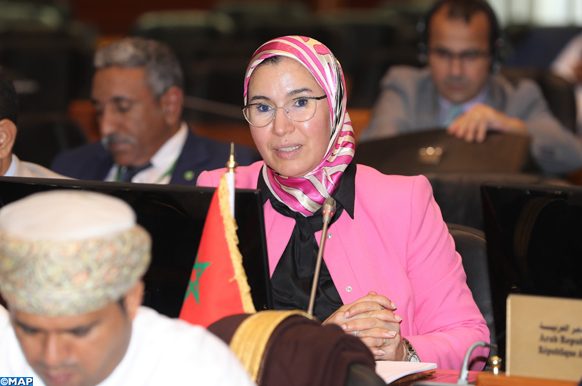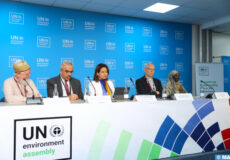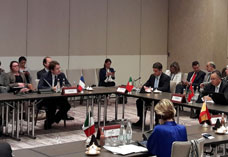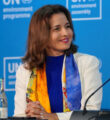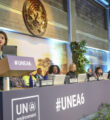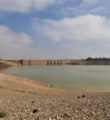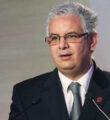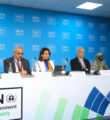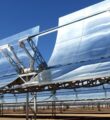Morocco Presents at the UN its Voluntary National Review on Sustainable Development
United Nations – Morocco presented, on Monday before the United Nations, its Voluntary National Review on the achievement of the 17 Sustainable Development Goals (SDGs), which aim at improving people’s living conditions, and to which the Kingdom has subscribed to achieve by 2030.
The presentation of Morocco’s Voluntary National Review, the second of its kind since 2016, takes place within the framework of the United Nations High Level Political Forum (HLPF) on Sustainable Development, which is being held virtually in New York.
This detailed report, the main points and conclusions of which were presented by Nezha El Ouafi, minister delegate to the minister of Foreign Affairs, African Cooperation and Moroccan Expatriates, emphasizes that Morocco considers the 2030 global SDGs program, to which it subscribed in 2015, as a global development framework that overlaps in most of its ambitions with the social project to which Moroccans aspire and whose contours and principles have been defined by His Majesty King Mohammed VI.
Since the early 2000s, the Kingdom has, in fact, been engaged in major societal projects for sustainable development for which one third of its GDP has been mobilized.
With the advent of the global SDGs program, Morocco’s choices have been confirmed and the reforms and strategies undertaken have taken on new dimensions, the document stated.
Thus, the approach adopted by the Kingdom for the implementation of this program revolves around structuring approaches focused on the promotion of human rights, the transition to the green economy, advanced regionalization, social and territorial cohesion, citizen participation and the development of strategic partnerships, particularly South-South and triangular partnerships.
These efforts have enabled the country to strengthen its accumulation of physical capital, promote its human capital, accelerate its transition to clean development and thus improve the content of its economic growth in terms of employment, reduction of poverty, social and territorial inequalities and reduction of dependence on fossil fuels, in a context marked by the international financial crisis of 2008 and three years of drought over the last decade, according to the same source.
As a result, economic growth averaged 4.2% over the period 2000-2018, unemployment fell to 9%, poverty dropped from 8.9% in 2007 to 2.9% in 2018, and inequalities have been reduced by developing the potential of all regions of the country.
Through investment in renewable energy, Morocco now has an electricity capacity from renewable sources representing 34% of the national capacity of the electricity mix. Efforts have also been made in the rehabilitation of cities, hydraulic sanitation and the extension of the forest area.
In the wake of the consolidation of its development model, several institutional reforms have been deployed in accordance with the provisions of the Kingdom’s 2011 Constitution. Thus, institutions for consultation and deliberation have been established, such as those for the advancement of women, child protection and assistance to persons with disabilities.
Similarly, a National Charter for the Environment and Sustainable Development has been adopted.
In order to ensure the coordination of SDGs and to monitor and evaluate them, a National Commission for Sustainable Development was set up under the authority of the head of government with the participation of the various ministerial departments and the High Commission for Planning.
Within this framework, a statistical platform dedicated to SDGs has been developed and a computable general equilibrium model has been elaborated to monitor and evaluate SDGs on a periodic basis. Under these conditions, the report noted that the COVID-19 pandemic has, however, disrupted the development efforts undertaken by the country following its direct negative effects on the economy as a whole and indirect impact through its consequences on Morocco’s main partners.
Morocco has been quick to respond in mitigating the effects of the pandemic. It resorted to confinement very early on, which allowed it to control the pressure on its health system.
At the same time, it has undertaken a series of actions to ensure the continuity of basic public social services, in particular in the field of education and training, notably through teleworking and digitization.
Also, a special fund for the management of the pandemic has been set up, benefiting from substantial budgetary resources and financial contributions from all actors, both businesses and households as well as civil society.
Economically, despite the support provided to households and businesses, the pandemic would have caused an overall potential loss of 8.9 points in economic growth in the second quarter of 2020, the report pointed out.
Furthermore, as part of its commitment to the implementation of the SDGs agenda at the international level, Morocco has made global partnership, in particular South-South cooperation, a strategic focus of its foreign policy and has given Africa a central place in this context, the document stressed.



